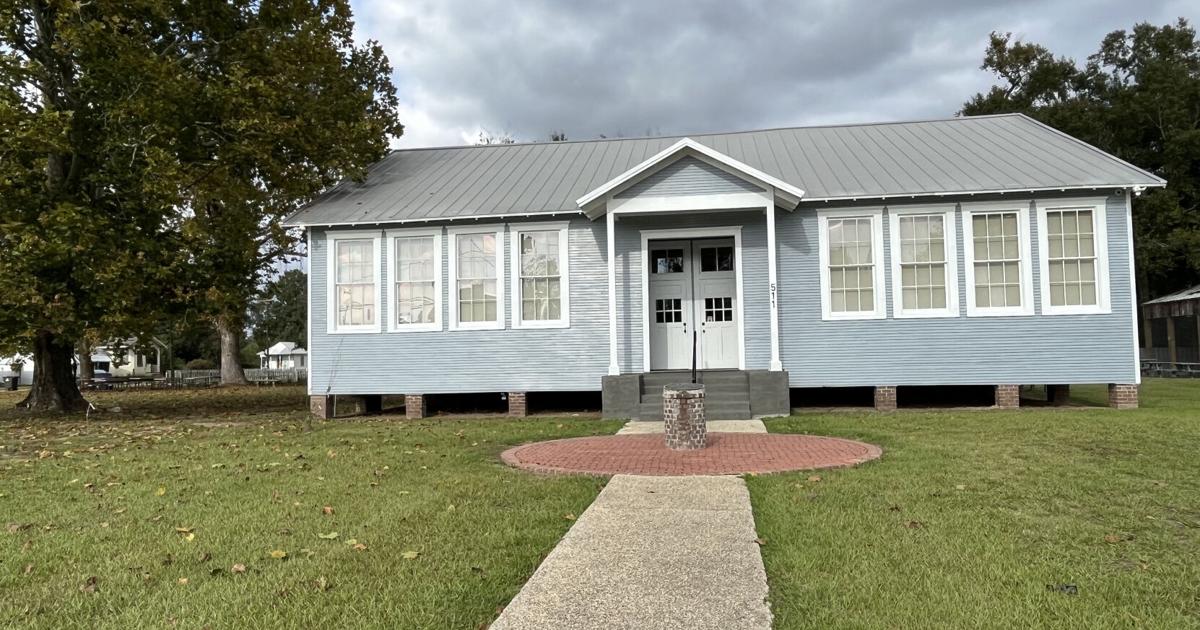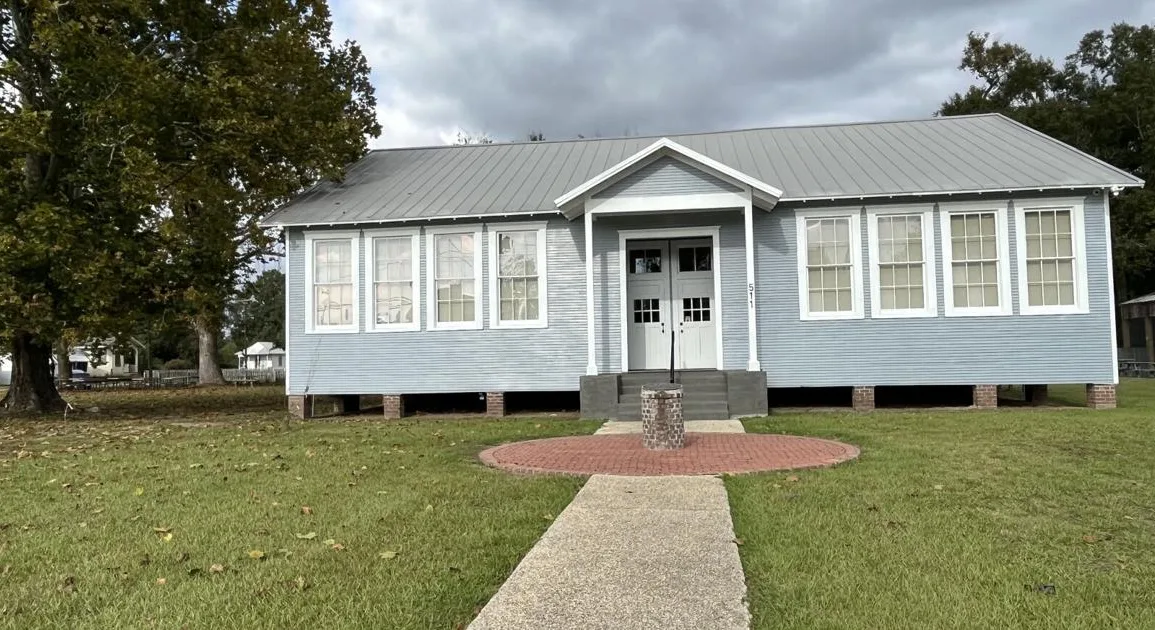
“Where there is no vision, the people shall perish” is the mission statement of the River Road African American Museum.
That mission’s meaning was an integral part of the museum’s planning and persistence to complete the renovation of one of the 400 Louisiana Rosenwald Schools.
With dedication, the museum teamed with local government, businesses, large corporations and churches to restore the schoolhouse, as well as move it from St. James Parish to Donaldsonville
“We thought it would only take five years total,” museum director Darryl Hambrick said. “It took us 15 years.”
Supporters gather last month to dedicate the renovated schoolhouse.
The Louisiana Rosenwald Schools provided educational opportunities for African American students between 1912 and 1932. Booker T. Washington recognized the need for schooling in rural areas. He partnered with Sears & Roebuck President Julius Rosenwald to create the schools.
The museum board knew the moving and renovation of the schoolhouse would be an arduously massive, but important, project.
The first obstacle was to secure funding for the $450,000 renovation. The museum partnered with Shell, as well as the city of Donaldsonville, Ascension Parish government, BASF, Blue Cross and Blue Shield of Louisiana, churches and many others, Hambrick said.
The next set of issues involved moving the schoolhouse from St. James to Donaldsonville. In order to make the move happen, the roof had to be cut off to make it across the Gramercy Bridge, Hambrick said.
Lastly, the museum had to deal with events such as the 2010 BP oil spill and COVID-19, which affected the museum’s tourism.
“We never gave up,” Hambrick said. “We kept our heads up those years and didn’t get defeated.”
The schoolhouse, at the corner of Lassard and Williams streets, kept a lot of the original design elements such the exterior paint’s light blue shade. The original Rosenwald schools grouped windows together providing natural light. Those same techniques were used in the museum’s Rosenwald restoration, according to Hambrick.
Hambrick said the schoolhouse is available for events such as meetings, workshops and reunions.
Dr. Thomas Durant Jr., former director of African American Studies at Louisiana State University and member of the museum’s board, said the museum itself and its different elements, including the challenging restoration project, are necessary.
“When you are discovering history and making it available to people you are discovering the roots,” Durant said. “If you never dig, you’d never know about the past and the history of African American people.”
“The museum represents that mission,” Durant said. “What you see here reflects that. The museum is a history-rich institution that has brought the past to life to motivate and help people in this area.”
Former State Rep. Roy J. Quezaire Jr. helped obtain funding for the renovation.
“This was a phenomenal project,” Quezaire said. “The history is there. The museum had a persistent vision to tell the story of the school in a relatable manner.”
Donaldsonville Mayor Leroy J. Sullivan Sr. said, “There was a vision the museum had for the building. They didn’t give up.
“I’m excited it’s finally a part of the community,” Sullivan said. “I’m excited to see it refurbished and how it will educate people in Donaldsonville and around the world.”
Hambrick, who founded the museum with his sister Kathe, is proud to see the continual progress happening in the museum and its surrounding properties.
The museum also offers other educational amenities to visitors. A flourishing garden consisting of the vegetables African descendants would plant, Leonard Julien Jr.’s vintage sugar cane planting machine and historical photos and artifacts are all part of the history the museum provides its visitors.
The museum’s next project is the $1 million True Friends Benevolent Hall restoration.
“Art and education are an integral part of Black people’s existence and essence,” Hambrick said. “We want to continue offering those at the museum.”
For more information about the Rosenwald Schoolhouse or the River Road African American Museum, visit africanamericanmuseum.org/.



